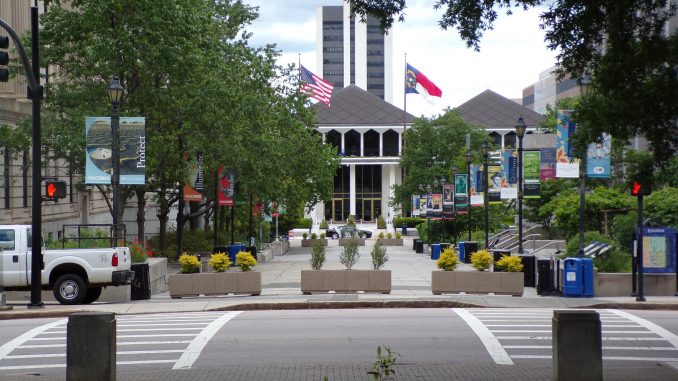
In the midst of the worst recession since the Great Depression, some North Carolina legislators are proposing to make illegal a critical tool that more than 25,000 North Carolinians are using today to help manage their unsecured debt loads: debt settlement.
House Bill 1067, which is pending in the General Assembly, would take away consumer choice by preventing struggling consumers from receiving the help they need to reduce their overwhelming debt burden, while at the same time kicking out of North Carolina a legal, beneficial industry that contributes more than $63 million annually to our state’s economy.
Debt settlement offers financially distressed consumers a federally regulated, private-sector alternative to bankruptcy, enabling them to settle their debts for less than they owe and to remain productive, contributing members of their communities. Debt settlement companies negotiate with consumers’ creditors to settle debts for less than what the consumers owe, providing a much-needed lifeline in the midst of economic uncertainty.
A May 2020 study by Harvard Kennedy School Professor Will S. Dobbie found that “individuals enrolling in debt settlement programs receive an average debt write-down of 33.2% on settled accounts after accounting for fees.” The same study found that, on average, consumers in debt settlement programs see $2.64 in debt reduction for every $1 in fees.
In North Carolina, that translated into more than $71 million in net consumer savings in 2018 alone, savings that were used in their communities to buy groceries, pay rent and keep their families together. These are savings – and local spending – that would be lost if HB 1067 were to become law.
Debt settlement is the most consumer-focused product in the financial marketplace. By federal law, clients pay no fees until they have accepted a settlement offer and made a payment toward that settlement. Clients are free to reject any settlement offer or to quit a debt settlement program at any time without any cost or penalty of any sort.
The industry offered the supporters of HB 1067 a layer of regulation in addition to the federal regime, empowering the state government to license and oversee the industry in North Carolina, but they refused and are instead advocating for a bill that would leave thousands of North Carolinians with few, if any, alternatives.
A surge in unmanageable consumer debt is expected in North Carolina because of the deep and lingering economic recession sparked by COVID-19. Without debt settlement, many consumers with crushing debt burdens will face a stark choice: declare bankruptcy or face a tidal wave of ruinous debt collection lawsuits.
While bankruptcy can be a viable tool for some consumers to address their debts, its long-term implications for consumers’ creditworthiness make it a last resort. By contrast, debt settlement offers a faster, more efficient, and far less destructive alternative for consumers who qualify.
Those pushing HB 1067 claim that debt settlement is illegal in North Carolina, but that’s false. Under state law, debt settlement companies may operate here as long as they take their fee after the debt has been settled, not before. It’s essentially a contingency fee arrangement, a concept familiar to many consumers of legal and financial services. HB 1067 would outlaw that at consumers’ expense.
So if HB 1067 isn’t about helping consumers, what is it about? It’s about protecting the short-term, high-interest lenders, the ones who trap consumers in a cycle of debt and default. Under state law, these lenders can charge consumers up to 30% interest, plus fees.
Lenders are using COVID-19 as a pretext to keep vulnerable consumers from getting the assistance they desperately need to negotiate settlements of these high-interest loans so they can reduce their household debt and keep their families financially stable. It’s shameful.
Fortunately, policymakers in Raleigh are taking notice. HB 1067 was on a fast track to becoming law until Senate leaders realized that its advocates had misled them, claiming falsely that the bill was not controversial and had consensus support. That isn’t true.
When lawmakers return to Raleigh next month, they should continue to reject HB 1067 and its objective of putting the interest of creditors ahead of the financial health of some of North Carolina’s most vulnerable citizens.
Tomas Gordon is CEO of the debt settlement firm ClearOne Advantage, which is based in Baltimore and operates in North Carolina.

